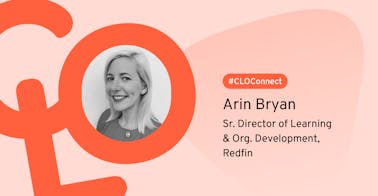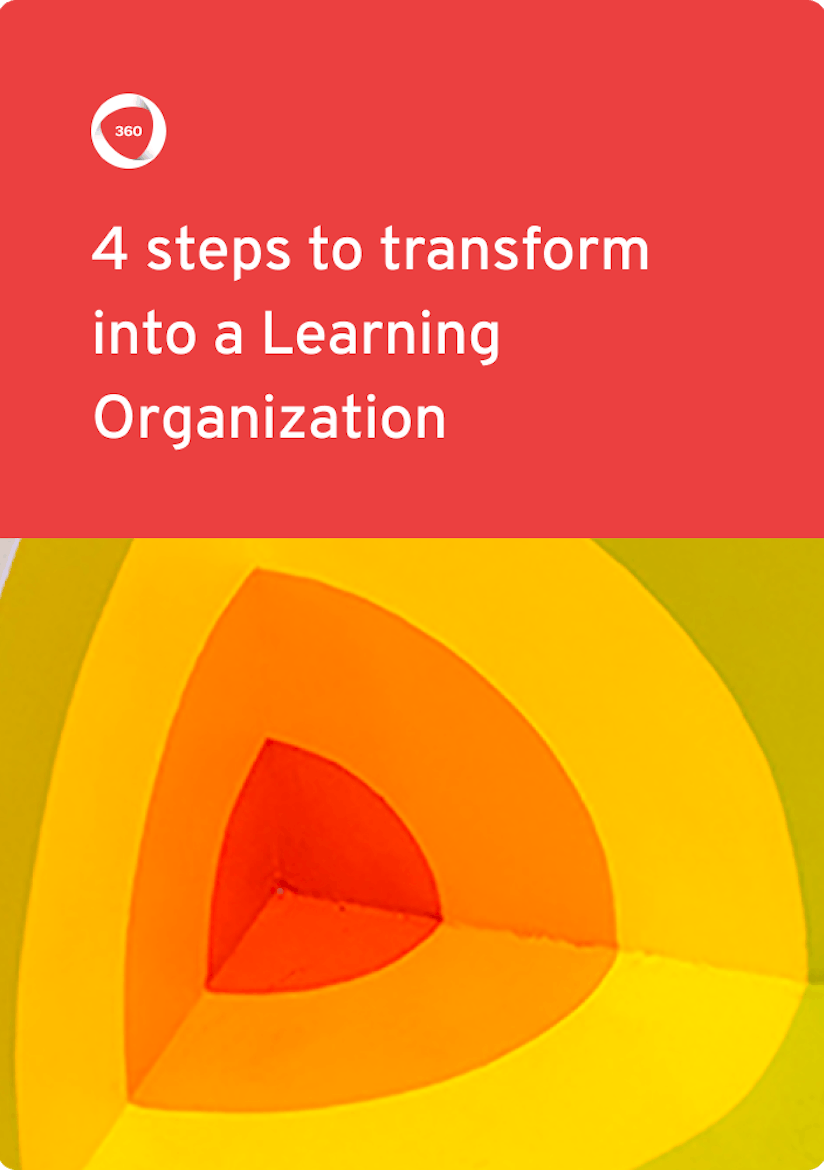
Discover the learning platform powered by collaborative learning.
A 15-minute discussion with an expert
100% tailored to your needs - with ❤️
No commitment. Free as can be.
Nearly everyone agrees that knowledge sharing is essential for effective teamwork. A well-functioning organization relies on it, especially to build proprietary skills that provide a competitive edge. However, many businesses still face challenges in unlocking and distributing these valuable insights across teams.
In one study, nearly 50% of employees said it was either difficult or nearly impossible to access the knowledge they need, with critical know-how often isolated in individual roles. But by fostering a culture of systematic knowledge sharing, companies can ensure that unique expertise flows freely, enhancing both individual skills and organizational capabilities.
This article explores the best practices for embedding a knowledge-driven culture, supported by real-world examples from companies that have successfully leveraged proprietary knowledge to drive innovation and growth.

By providing your contact info, you agree to receive communications from 360Learning. You can opt-out at any time. For details, refer to our Privacy Policy.
Knowledge sharing is the exchange of ideas and information between individual team members, groups of colleagues, and organizational stakeholders. This is crucial to build institutional knowledge and develop proprietary skills—a competitive advantage both in hiring talent and overall business performance.
In general terms, the more knowledge is efficiently shared across the organization, the better. But there’s a key difference between efficient, systematic knowledge sharing and ad hoc, on-the-spot conversations. The latter are still valuable, but the former should be the goal.
It’s fairly obvious that as information flows between team members, best practices and a shared understanding can develop. Which should in turn boost performance and lead to better business outcomes.
But that’s not just going to happen on its own—at least not in a measurable, predictable way. Structured organizational knowledge sharing:
Any one of these is a major advantage. Together, they’re the difference between a so-so company and a top performer.
So how do you actually build this culture and process of knowledge sharing? We’ll see some real-life examples in a moment. But broadly speaking, these are the best practices to build into your programs.
Knowledge sharing is a learned behavior, most likely to occur when employees can mirror what they see at the top. The first step to creating company-wide cooperation is to have executives emphasize and personify this culture.
“All hands” meetings, town halls, and public Slack channels are all good forums for leaders to share lessons learned or perspectives for the coming quarters. But it must be genuine. Avoid “business speak” and glossy presentations, and favor honest conversations and open forums.
If you’re serious about knowledge sharing, codify it in your company culture. Make it a clear expectation that every team member will share information and seek out insights from their peers.
The danger of enthusiastic knowledge sharing is the sheer amount of information flying around—not all of it helpful. Show team members how to be precise and deliberate with their ideas. And of course, keep meetings focused and purposeful.
Once again, this comes from the top. Back away from slide decks full of corp speak, and only share information with the whole company that actually interests or impacts everyone. Finally, ask for feedback on whether conversations were helpful, and actively adjust based on the responses.
Good performance deserves recognition. And that shouldn’t be limited to top salespeople. Public appreciation for subject-matter experts who build new courses, plus team members with high completion or achievement rates can really help.
How you do this will depend on your own company dynamics and culture. Some teams respond really well to awards ceremonies, while others can be turned off. Good learning management tools have friendly competitions and leaderboards built in, which gives employees something to aim towards, without the public awards’ song and dance.
Consistent knowledge sharing won’t just happen by chance. Just like any other company process, the right tools help systematize and automate much of the work.
This starts with choosing the right learning management system (LMS). This software lets you author new courses quickly, and manage their rollout and completion company wide.
A good LMS will:
Here’s our list of the best collaborative learning tools to help you choose.
All of the above sounds good in theory. But building a high-functioning, knowledge sharing culture is more than just theory.
To see what this looks like in practice, here are four companies that have successfully built cultures of knowledge sharing, and are seeing the results.
Michelin—yes, that Michelin—is a multinational tire manufacturer with more than 130,000 employees. This is both a gift and a challenge: such a large workforce is rich with expertise, but L&D at such a scale is also truly daunting.
"At Michelin, we know that our employees have a wealth of knowledge to share,” says Pedagogical and Digital Development Engineer Joffrey Ancelot. “Our mission is to break down the barriers to creation. If an employee wakes up one morning with knowledge to share, our ambition is to make them capable of deploying it by the afternoon at a local level.”
User-generated learning content is an incredible gift. Used well, it takes the pressure off L&D leaders, who don’t need to design and author every course. And it empowers your subject-matter experts—the people who know the technical details and what a task really requires—to lead with their ideas.
Joffrey gives the example of a factory employee who realized that some colleagues weren’t respecting safety rules fully. Instead of waiting for formal training to take place, they created a module with the correct procedures to follow. Within one week, 70% of target learners had completed the training and were handling products with the correct care.
This factory team saved time, increased efficiency, and avoided work-related accidents. All because the right person was free to share care information at the right moment.
Of course, this won’t just happen. You need the right learning management system which encourages knowledge sharing and collaboration. In Michelin’s case, that system is 360Learning. And the results are astounding:
Michelin’s learning and development team “The Talent Factory” can facilitate training for tens of thousands of learners with relatively little effort. By freeing internal thought leaders to create and share their own courses—powered by rapid course authoring tools—training is rolled out quickly in response to the most pressing needs.
There’s an unbelievable amount of corporate learning material available. And some organizations make the mistake of believing that more is better. Offer employees a subscription to a large learning library, and that’s your training program sorted.
But as Murex’s Head of Digital Learning Zachary Pfau explains, that’s just not how it works. “You have the YouTube or Instagram effect, meaning people can put out a lot of content without understanding what’s most useful. It ends up not being consumed, resulting in a degraded user experience and frustration from subject-matter experts.”
At the other end of the spectrum, you have L&D teams painstakingly building each course themselves, based on requests from managers and executives. That top-down approach is misguided, and often very slow. You often have the wrong people trying to interpret team needs, and end up with watered-down training that doesn't really help.
Knowing this, Zachary and the Murex team wanted a tool that would:
The ultimate outcome would be training programs built through knowledge sharing, led by the people who actually know how the work is done best. And with almost 60 training projects required to start with, Murex needed to turn SMEs into a resource for creating training projects at scale.
With 360Learning as their all-in-one learning platform and project management tool, knowledge sharing was transformed. In five minutes, L&D leaders could assign a project lead, SMEs, and a deadline. Each expert could create activities, review, and promote the project within the right groups.
Crucially, Murex teams can now deliver a new training project every week. And by working at this speed, Murex can now adapt to changing business needs.
“Now you have a learning platform, an authoring tool, and project management capabilities to master the process around production - all in the same place,” says Zachary. “That's really powerful.”
The results:
Learn more about Murex’s L&D program
Building a knowledge sharing culture relies on willing subject-matter experts. At first glance, these might sound like long-tenured managers or team leads who’ve been providing training for years.
But the secret to knowledge sharing at scale is identifying SMEs in all walks of the business. That’s what AlphaSights managed to do. As L&D Manager Jenny Goersch explains, “You don’t have to be an eLearning hero to create content. We have experts, for example, on the commercial side, the engineering side—we’ve engaged over 300 subject-matter experts as authors.”
These changes have been possible thanks largely to the authoring tools available in 360Learning. AlphaSights decentralized the content creation process, and turned a whole host of employees into educators. To date, more than 300 team members have authored courses. This made course content more credible, relevant, and role-specific.
There’s a direct impact on learner’s attitudes, too. “Before 360Learning, we had trouble getting people to attend their classroom sessions and the presentation format simply wasn’t engaging enough.” says Alexander Celer, EMEA & APAC L&D Manager.
Now, completion rates have soared to 95%. As Digital Learning Manager, Blanca Ibarra-Ruiz explains, “It’s easy to train our employees with this collaborative approach, and everyone is eager to become an author.”
Read the full AlphaSights story
A large aerospace company with more than 83,000 employees, Safran truly embodies knowledge sharing culture. In fact, its L&D motto is “Safran teaches Safran,” a value critical to ensuring it can develop and skill employees for the changing aviation industry.
After years of so-so L&D programs, the company decided to create Safran University, its internal learning and training platform. The training platform is organized in "communities". In total, there are 13 autonomous groups that manage and structure their own sub-groups. Around 300 active authors (course creators) with subject-matter expertise contribute digital training courses to the platform, while 1,200 more manage the associated training courses.
The key goal—and the reason Safran University can succeed on this scale—is to involve SMEs in creating courses. The more they’re asked to create content and see the rewards, the more motivated they are to share their knowledge.
“The fact that Safran learns from Safran, that our in-house experts learn from their employees, is really at the heart of it,” says Frédéric Henrion, Director of Global Learning & Safran University.
Everybody gets involved: authors, administrators, and center managers. This helps create Safran’s "glocal" training approach, where learners learn at the right time, at the right place.
All of this is built on with 360Learning. In 2023 alone, Safran's platform boasted:
Hopefully those four examples have inspired you to make knowledge sharing a key cultural priority for your organization. Which is great—there’s really no way you’ll build this culture without active effort.
Your clear next step is to look into the right tools to help copilot this program. And for that, we suggest you talk to us. 360Learning uses collaborative learning to help you build a high-performing organization. We make knowledge sharing easy, enjoyable, and effective for your whole team.
A 15-minute discussion with an expert
100% tailored to your needs - with ❤️
No commitment. Free as can be.
By providing your contact info, you agree to receive communications from 360Learning. You can opt-out at any time. For details, refer to our Privacy Policy.